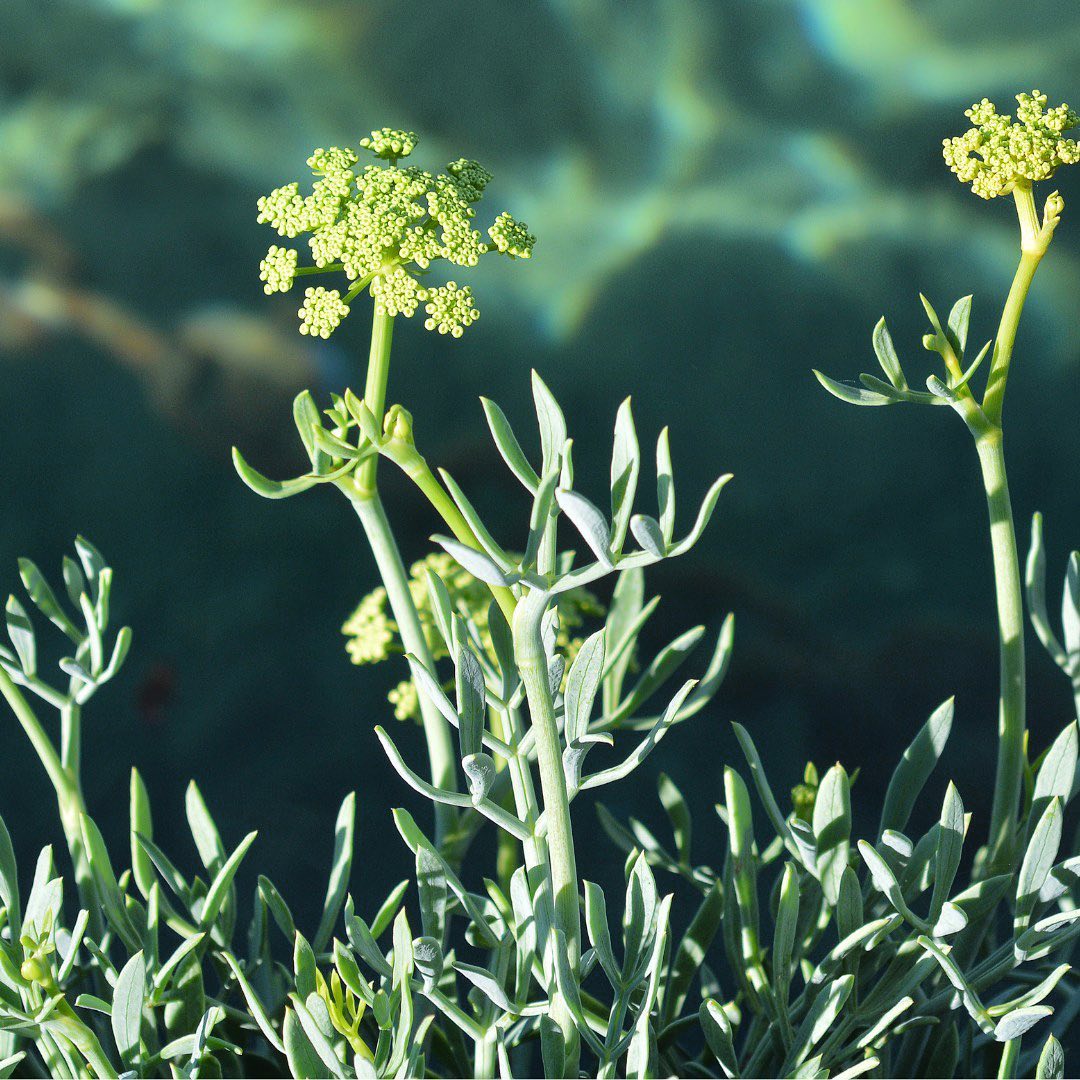
SEA FENNEL (Fonoll Marí)
Sea fennel (Crithmum maritimum), known in Mallorcan as fonoll marí (also called “sea parsley”), is an edible plant found in Mallorca and many other parts of the Mediterranean. It’s used in cooking for its salty, aniseed-like flavor, and in traditional medicine for its many health benefits. It grows on rocky coastlines near the sea and blooms in summer. It resembles wild fennel—hence its name.
The ancient Greeks and Romans were already harvesting it for its digestive and antioxidant properties. During the Middle Ages, monks commonly grew it in monastery gardens to treat stomach issues and stimulate appetite.
During the maritime expeditions of the 15th and 16th centuries, sailors brought it pickled to help prevent scurvy, thanks to its high vitamin C content. In the Balearic Islands, its use is deeply rooted in local tradition, often appearing in salads, pickles, and fish dishes.
If you happen to be around Cala BonSol, it’ll be almost impossible not to notice the fonoll marí. It grows in the most unexpected places—small ravines, sandy soils, and between rocks. One of its Italian nicknames is spaccasassi, which literally means “rock splitter.” Like limonastrum and other plants of the macchia mediterranea, it’s a protected species—so, how come it’s still edible?
Fonoll marí has been protected in the Balearic Islands since 2005 and requires government authorization for commercial harvesting. However, if you're collecting less than a kilo for personal use, no permit is needed. So, if you’re curious to “taste” this delicacy (search online for how to properly trim the tips without pulling up the roots), whether for making an infusion or preserving it in a small jar with a bit of salty water, here’s a reminder of its benefits and a few recipe ideas. Enjoy!
BENEFITS & RECIPES
BENEFITS
- Rich in nutrients:
Sea fennel is an excellent source of vitamin C, iodine, potassium, magnesium, calcium, and dietary fiber. - Diuretic and cleansing:
Helps eliminate excess fluids and toxins, supporting kidney function. - Digestive aid:
Relieves digestive issues such as bloating, gas, diarrhea, and gastrointestinal cramps. - Anti-inflammatory:
May help reduce inflammation and pain, both internally and when applied topically. - Antioxidant:
Vitamin C and other compounds in sea fennel help protect cells from damage caused by free radicals. - Stimulant:
Traditionally used to stimulate endocrine glands and thyroid function. - Skin care:
Found in cosmetic products for its revitalizing and anti-inflammatory properties. It refreshes the skin, helps reduce wrinkles, and may benefit sensitive or irritated skin.
RECIPES
Fonoll marí is a staple in Mallorcan cuisine, often used as a garnish for pa amb oli, trampó, or traditional soups. The fleshy leaves—the tastiest part, due to their pulp—are carefully picked, washed, and pickled in mild vinegar with water and a bit of salt, allowing long-term preservation.
- Gastronomy:
Typically used as a garnish for fish and seafood dishes or in fresh salads.
Sea fennel with sea water and vinegar
Ingredients:
- 300 g of sea fennel
- 50% sea water
- 50% organic vinegar
Place the ingredients in a jar with vinegar, salt, and water. Keeps for up to 6 months.
Fresh salad with sea fennel and tomatoes
Ingredients:
- 50 g of fresh sea fennel
- 200 g of cherry tomatoes
- 1 red onion, thinly sliced
- Extra virgin olive oil
- Sea salt and black pepper
- Infusions:
Can be used fresh to prepare a herbal tea that helps with digestion or acts as a natural diuretic.





